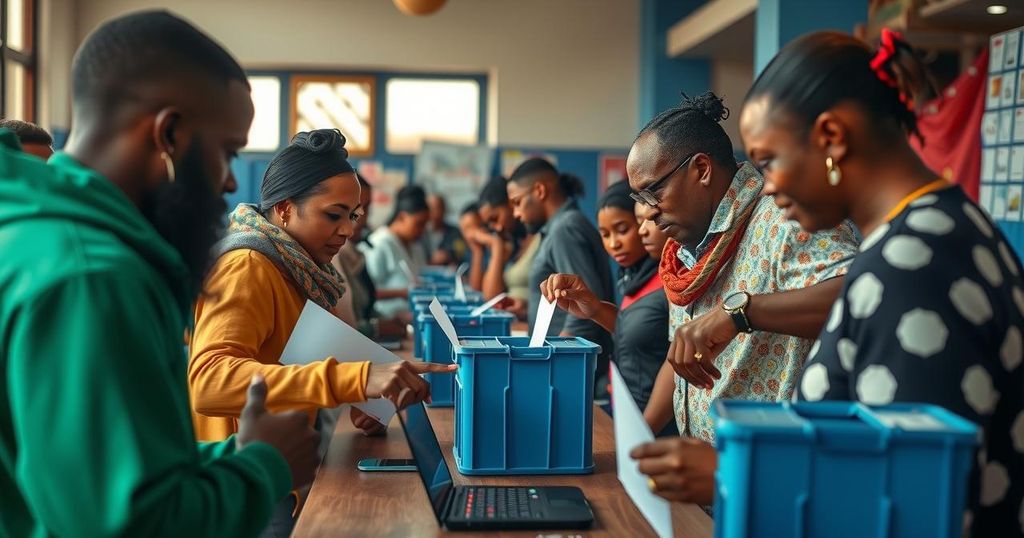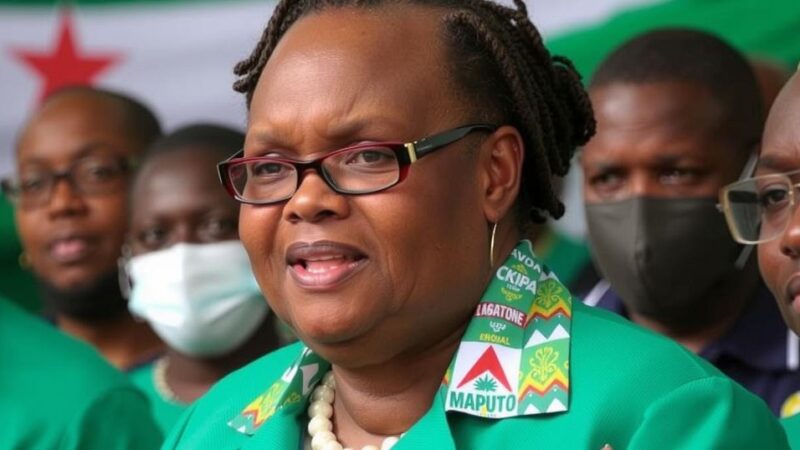Senegal’s parliamentary elections are underway as President Faye aims for a decisive majority to implement his reform agenda. Over seven million voters are eligible to select representatives for the National Assembly amidst concerns of unemployment and rising prices. The outcomes will influence Faye’s policies and the economic stability of Senegal in light of recent budget challenges and opposition movements.
Polling stations in Senegal have opened for parliamentary elections, a critical moment as President Bassirou Diomaye Faye seeks to solidify his governance with a decisive parliamentary majority. Over seven million registered voters are eligible to elect representatives to the National Assembly, ultimately affecting the future of reformative policies promised by Faye upon his election eight months prior. Faye aims to tackle pressing issues such as unemployment and soaring inflation that weigh heavily on the electorate’s minds. The elections, initially scheduled for February and delayed amidst significant unrest, will determine members of the 165-seat National Assembly, serving a five-year term. Faye’s previously announced commitments include economic restructuring, social justice, and heightened anti-corruption measures, which resonate particularly with Senegal’s youthful demographic. In a strategic political maneuver, Faye dismissed the opposition-led parliament in September, prompting these snap elections. His administration’s initiatives are backed by a leftist pan-African philosophy, emphasizing a shift in Senegal’s economic alliances and reinforcing national sovereignty over its hydrocarbon and fishing resources. Historical voting patterns suggest that Senegalese citizens often reaffirm their presidential choices during parliamentary contests, positioning Faye’s party, Pastef, favorably for success. However, recent revelations of a substantial budget deficit imply that the new government may face hurdles in executing its ambitious agenda, especially with an ongoing $1.9 billion IMF program currently on hold for review. A potential threat to Faye’s party comes from the surprising coalition of two opposition parties, including the Alliance for the Republic led by former President Macky Sall. As of now, two smaller opposition groups, one led by Dakar’s mayor, Barthelemy Dias, also contest the elections. Prominent political figure Mariam Wane Ly expressed optimism regarding Pastef’s ability to achieve the majority needed to advance their platform following the election. She reflected on the campaign’s significance, stating, “I think it’s going to make up for all the unhappiness.” The outcome of these elections will significantly impact Senegal’s political landscape and the feasibility of the reforms initially promised by President Faye and his administration. As the country navigates through economic challenges and political realignment, the electorate’s decisions in this election will shape the future governance of Senegal and its reform aspirations.
The recent parliamentary elections in Senegal are vital as they follow President Bassirou Diomaye Faye’s earlier electoral triumph, which came with strong reformist aspirations. After facing a potentially hostile opposition and accruing significant economic challenges—such as high inflation and unemployment—the need for a stable governing body is paramount. The elections also reflect a historical trend in which parliamentary outcomes affirm presidential elections, highlighting the intricate ties between the legislative and executive branches in Senegal.
In conclusion, the parliamentary elections in Senegal represent a crucial juncture for President Faye as he seeks to secure legislative support for his reform agenda. The outcomes will determine not only the governing majority but also the feasibility of promised economic and social changes amid significant national challenges. With tensions between Faye’s administration and the opposition parties mounting, the upcoming results will play a pivotal role in shaping Senegal’s immediate political future.
Original Source: www.aljazeera.com







